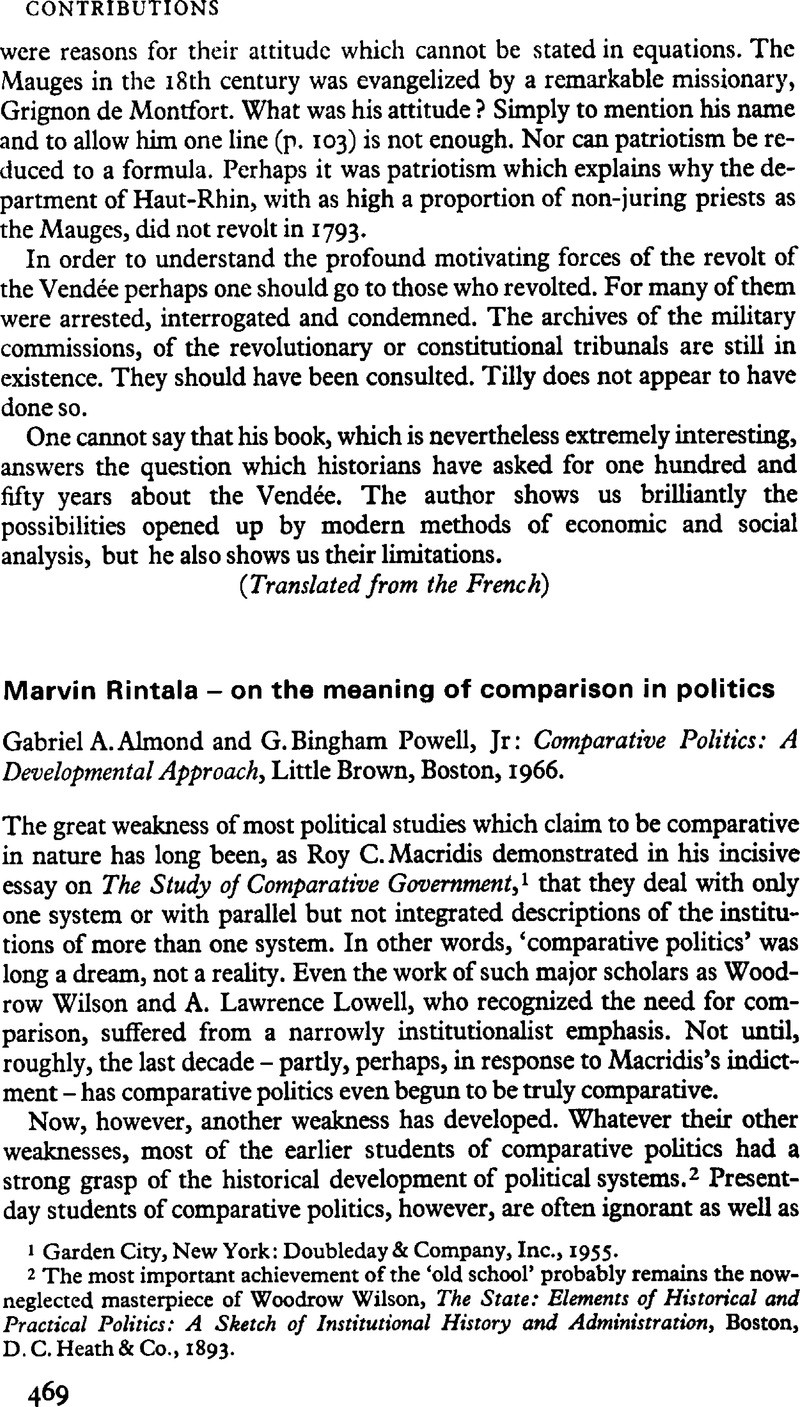No CrossRef data available.
Published online by Cambridge University Press: 28 March 2014

1 Garden City, New York: Doubleday & Company, Inc., 1955.
2 The most important achievement of the ‘old school’ probably remains the now‐neglected masterpiece of Woodrow Wilson, The State: Elements of Historical and Practical Politics: A Sketch of Institutional History and Administration, Boston, D. C. Heath & Co., 1893.
3 New Haven: Yale University Press, 1957.
4 New York: McGraw‐Hill Book Company, Inc., 1963.
5 ‘The Problem of Generations’, in his Essays on the Sociology of Knowledge, edited by Paul Kecskemeti, London, 1952, pp. 276–322.
6 ‘The Problem of Political Generations,’ in his Social Movements: An Introduction to Political Sociology, New York, 1951, pp. 118–27.
7 Permanent Revolution: The Total State in a World at War, New York, 1942.
8 See, for example, several works by Rintala, Marvin: Three Generations: The Extreme Right Wing in Finnish Politics, Bloomington, 1962: ‘The Problem of Generations in Finnish Communism’. The American Slavic and East European Review, April 1958, pp. 190–202: ‘A Generation in Politics: A Definition’. The Review of Politics, October, 1963, pp. 509–22; ‘Political Generation’. International Encyclopedia of the Social Sciences (forthcoming).Google Scholar